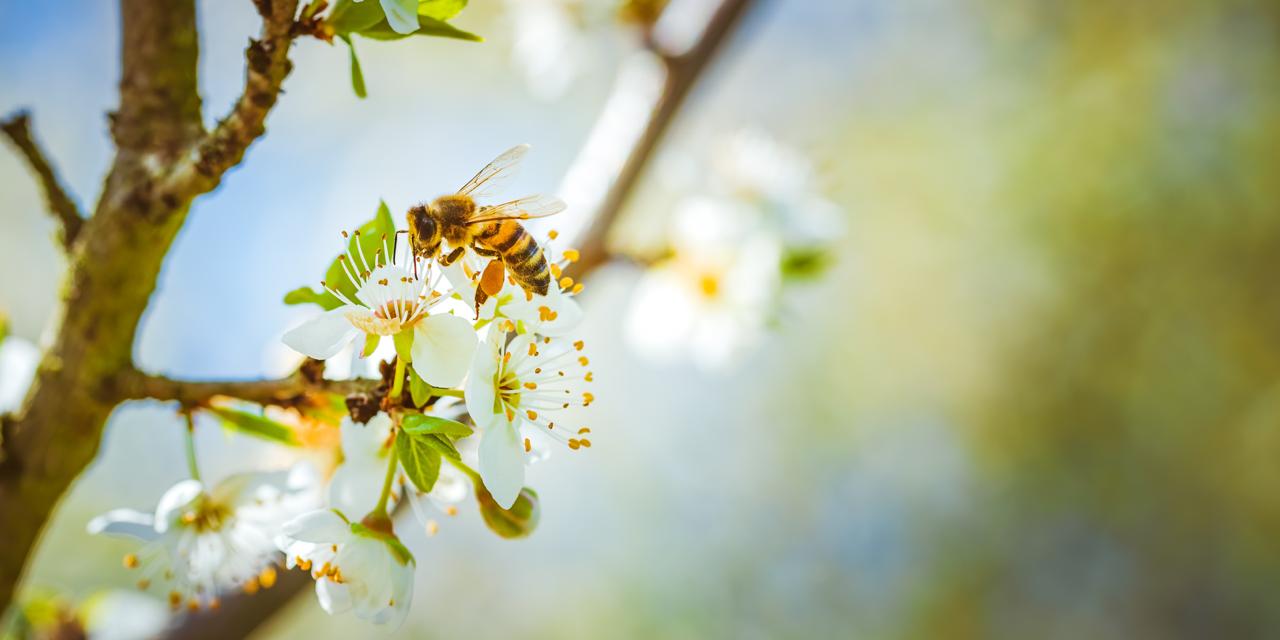Did you know that the farther pollen travels, the more life is shared?
For 120 years, Rotary has built bridges between cultures and continents to carry out global actions that promote peace, fight illiteracy and poverty, provide access to clean water and sanitation, finance entrepreneurship, fight diseases, and protect the environment. As part of this environmental mission, the Rotary clubs of France and Belgium are uniting their 20 districts to launch a large-scale initiative for pollination.
These districts have mobilized specifically to address the urgent need for pollinator protection. One in ten pollinating insects is now at risk of extinction. Alarming reports from the European Commission warned of the gradual disappearance of honeybee populations and a steep decline in other key pollinators such as wild bees and butterflies.
Yet, 84% of cultivated plant species and 78% of wildflower species rely directly on insect pollination. That means 75% of global food production depends on these creatures. To protect this vital part of our ecosystem, we must revegetate our cities and countryside, restore pollinator habitats, and fight the Asian hornet—a formidable predator that threatens bee populations.
In response, approximately 1,200 clubs across the 20 districts have joined forces to protect this universal heritage. The goal is to enhance pollination across the territory by supporting bee colonies and other pollinators. By encouraging vegetation and flowering, we are taking a beneficial approach to biodiversity conservation.
On November 21, 2021—Environment Day—Rotary launched the “Flowers for Bees” campaign, offering 50,000 rose bushes for sale to raise funds. In just five months, the campaign raised €400,000, enabling the purchase of 2,000 beehives, 3,000 insect hotels, 3,000 Asian hornet traps, and several tons of honey-producing seeds.
On May 20, 2022—World Bee Day—Rotary donated hundreds of beehives and installed habitat modifications, including hedges and insect hotels, many of which were built by children. Today, local honey is regularly harvested. Some of it is shared with schools that participated in the project, while the rest is sold to support further environmental actions.
Inspired by this work, I joined ESRAG and the Operation Pollination Task Force led by Chris Stein. This year, we focused on monarch butterfly conservation, recognizing the need to protect them alongside bees. Thanks to the Task Force, I’ve discovered new friends, new projects, and new inspiration.
Now, as Environmental Chair for District 1640 in Normandy, I’ve launched a simple yet powerful new initiative: distributing seed packets. The objectives are clear—raise awareness, encourage action, create momentum, and showcase impact.
Key Campaign Actions:
- Provide seed packets to young children via their teachers to raise awareness about pollination.
- Offer seed packets in workplaces to educate employees about biodiversity.
- Distribute packets through local partners, clubs, horticultural schools, and associations.
- Reach 200,000 homes with Rotary/ESRAG-branded seed packets to raise awareness and recruit new members.
- Collaborate with city halls to promote flower planting in public gardens.
- Align the campaign with the Prince Albert II of Monaco Foundation’s communications push in May/June 2025.
- Track and share successes to demonstrate tangible results.
- If successful, scale the campaign across Europe and globally.
The campaign is being carried out in partnership with the French Observatory of Apidology, whose mission includes saving bees and protecting biodiversity. The OFA is studying the health benefits of propolis, harvested globally, to showcase how nature can offer solutions to modern challenges.
This project is a concrete response to the pollinator crisis. It’s a critical time to raise awareness and involve communities because everything in our ecosystem is interconnected. This isn’t just about bees—it’s about the future of the planet and humanity.
Sixty years ago, there were 2.5 billion people on Earth. Today, there are 7.5 billion, and by 2030 there will be 8.5 billion. 2030 is already tomorrow—let’s act now: flowers for bees, and fruits for all!
The project has launched, but time is of the essence. Flower sowing happens in May and June. We must quickly engage Rotary clubs and begin communications. With the help of governors and club presidents across France and Belgium, we can sow hectares of flowers and enjoy the fruits—literally—of our labour.
2025 is just the first step. Let’s build a legacy of success for 2026 and beyond. Today’s small actions shape the world of tomorrow.
About the Author:
Pascal Quinty, Training engineer and former project manager, safety/environment officer, and VP of international purchasing in the raw materials sector. Passionate about large-scale project management and sustainable development.
Governor of Rotary International District 1640 (Normandy), founder of the “Plant Rose Bushes to Save the Bees” campaign in collaboration with 20 Rotary governors.
Member of ESRAG and advocate for international pollination networks.
Motto: “The bigger the vision, the more attractive Rotary becomes.”
Belief: “A dance between petals and wings is nature in harmony.”

